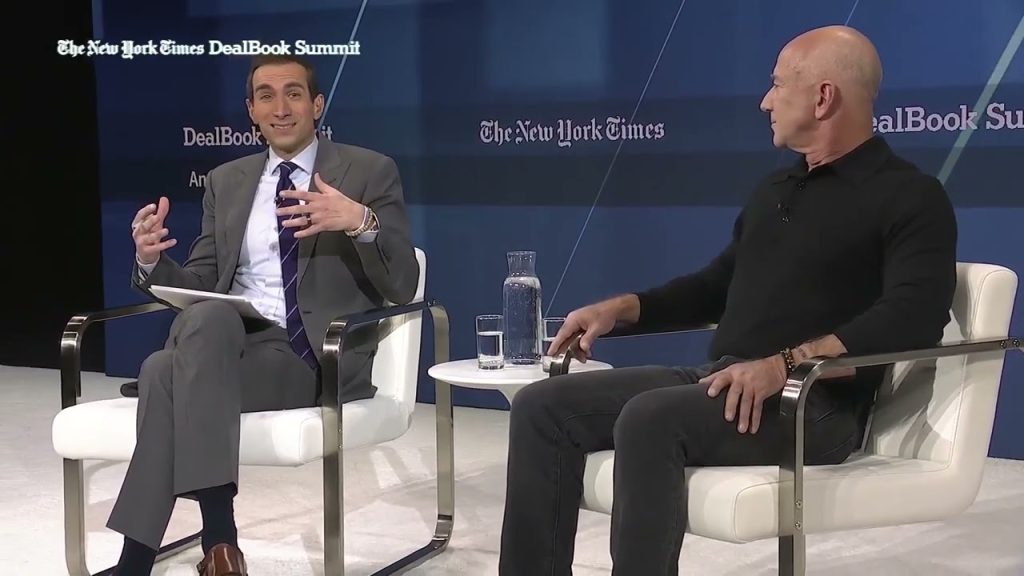In a recent interview at The New York Times’ DealBook Summit, Amazon founder Jeff Bezos expressed optimism about President-elect Donald Trump’s potential return to office, noting that he perceives Trump as more “calm,” “confident,” and “settled” compared to his first term. The interview provided an extensive platform for Bezos to articulate his perspectives on various issues, including his aspirations to collaborate with Trump, his ongoing competition with Elon Musk, and his commitment to Amazon amid other ventures. Reflecting on Trump’s focus on reducing regulations, Bezos mentioned his willingness to assist in these efforts, believing that the current regulatory environment is too stringent.
Bezos highlighted his enthusiasm for his space venture, Blue Origin, indicating that he believes it could become the most successful business he has ever been involved with, even exceeding Amazon’s market prowess, currently valued at $2.3 trillion. He elaborated on his vision for the company, which involves moving heavy industry off Earth and facilitating human expansion into deeper space. This ambitious outlook underscores his long-standing passion for spaceflight, which harkens back to his childhood interests.
Despite stepping down as CEO of Amazon three years ago, Bezos remarked that he has never worked harder for the company. In candid reflections, he admitted to being “extremely lame” at retirement, affirming his enduring attachment and commitment to Amazon. He explained that from the inception of Amazon, his goal was to create a company that would outlive him. His current engagement is fueled by both personal investment and genuine curiosity about the future of the tech giant, emphasizing that his emotions are deeply intertwined with Amazon’s journey and innovation.
Artificial intelligence (AI) takes center stage in Bezos’s current focus at Amazon, where he revealed that around 95% of his efforts at the company are dedicated to AI developments. He expressed excitement about the potential of AI, dismissing fears surrounding the technology’s implications. He also took the opportunity to discuss recent announcements from Amazon Web Services regarding new AI foundation models, showcasing the company’s dedication to advancing its capabilities in this transformative field.
Bezos also addressed his ownership of The Washington Post, especially in light of his controversial decision to end presidential endorsements before the recent election. He refuted claims of cowardice regarding this decision, highlighting that his potential conflicts of interest render him not the ideal newspaper owner. Instead, he positioned himself as a financial resource for the publication, affirming his commitment to its integrity and operational needs, thus illustrating his nuanced approach to the intersection of personal interest and public responsibility.
On the topic of competition, Bezos took a more amicable stance toward Elon Musk, acknowledging SpaceX as a competent rival while emphasizing a professional respect. He indicated that he is optimistic about Musk’s approach to using his influence in tech for broader industry benefits rather than self-serving attempts. Moreover, Bezos reflected on his public persona versus who he perceives himself to be, expressing a desire to be recognized as an inventor rather than just a billionaire. He maintained that his identity aligns with innovation and creating wealth for others, demonstrating a deeper aspiration for legacy beyond financial status. The DealBook Summit not only highlighted Bezos but also featured prominent figures like Google CEO Sundar Pichai, Federal Reserve Chairman Jerome Powell, and more, showcasing a vibrant discussion among influential leaders across various sectors.


